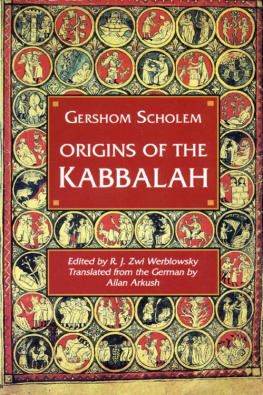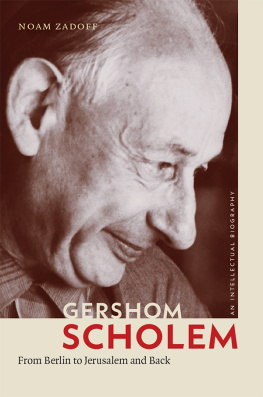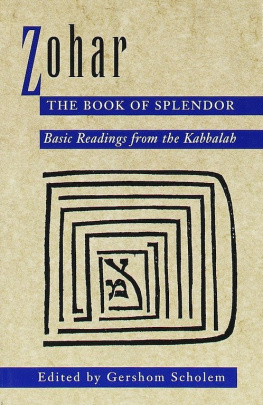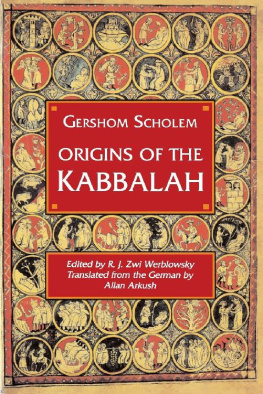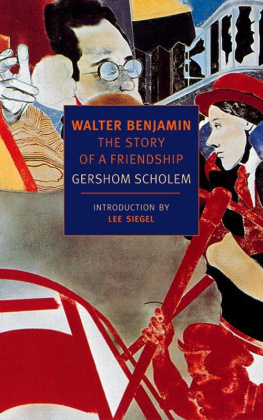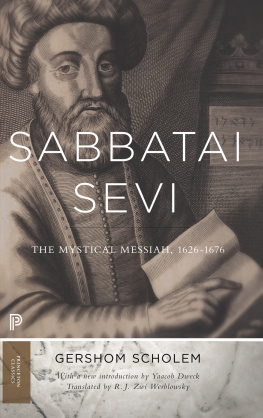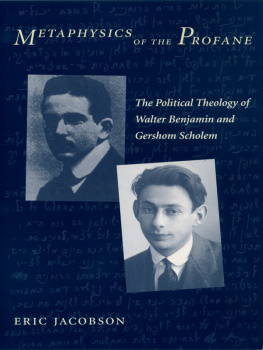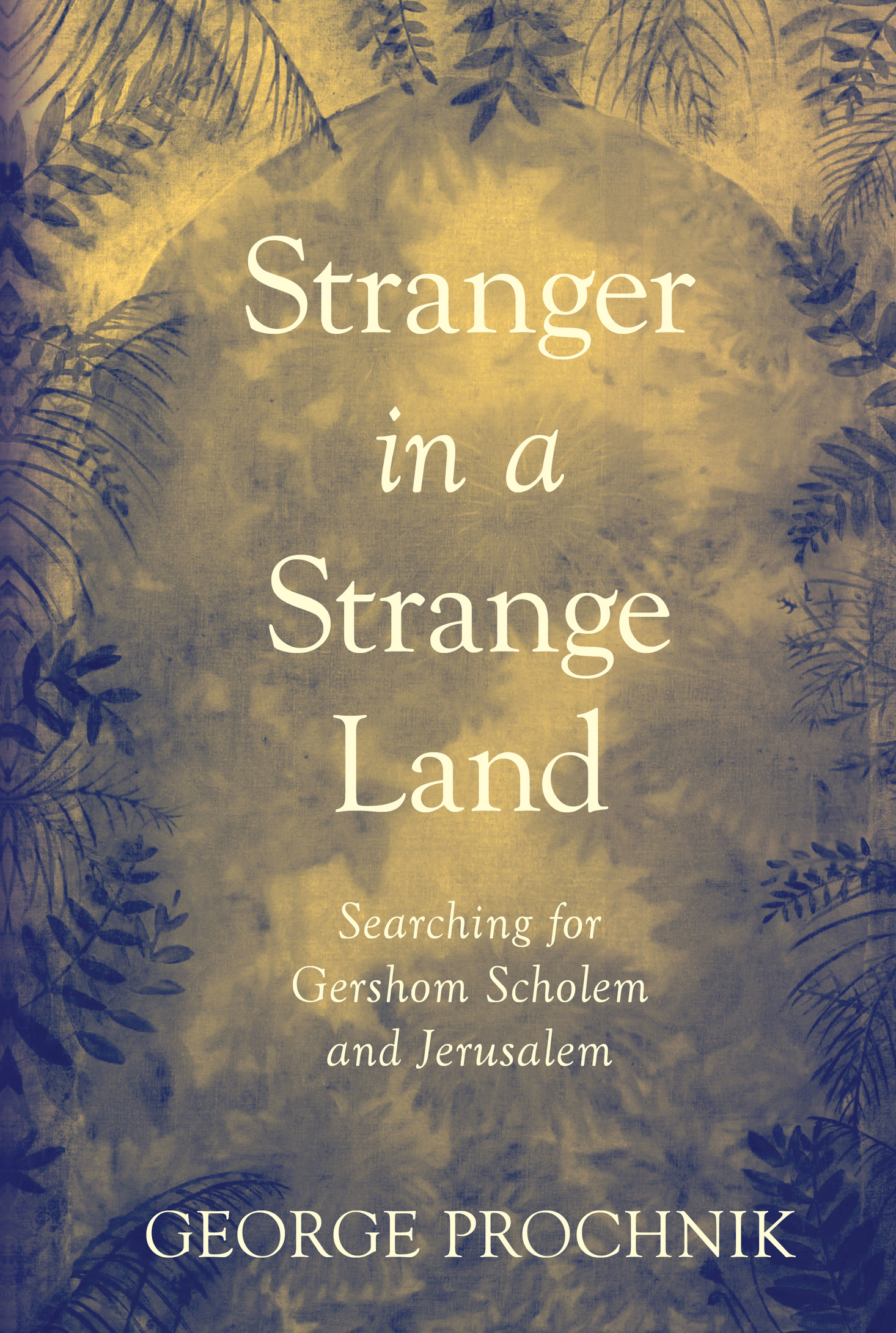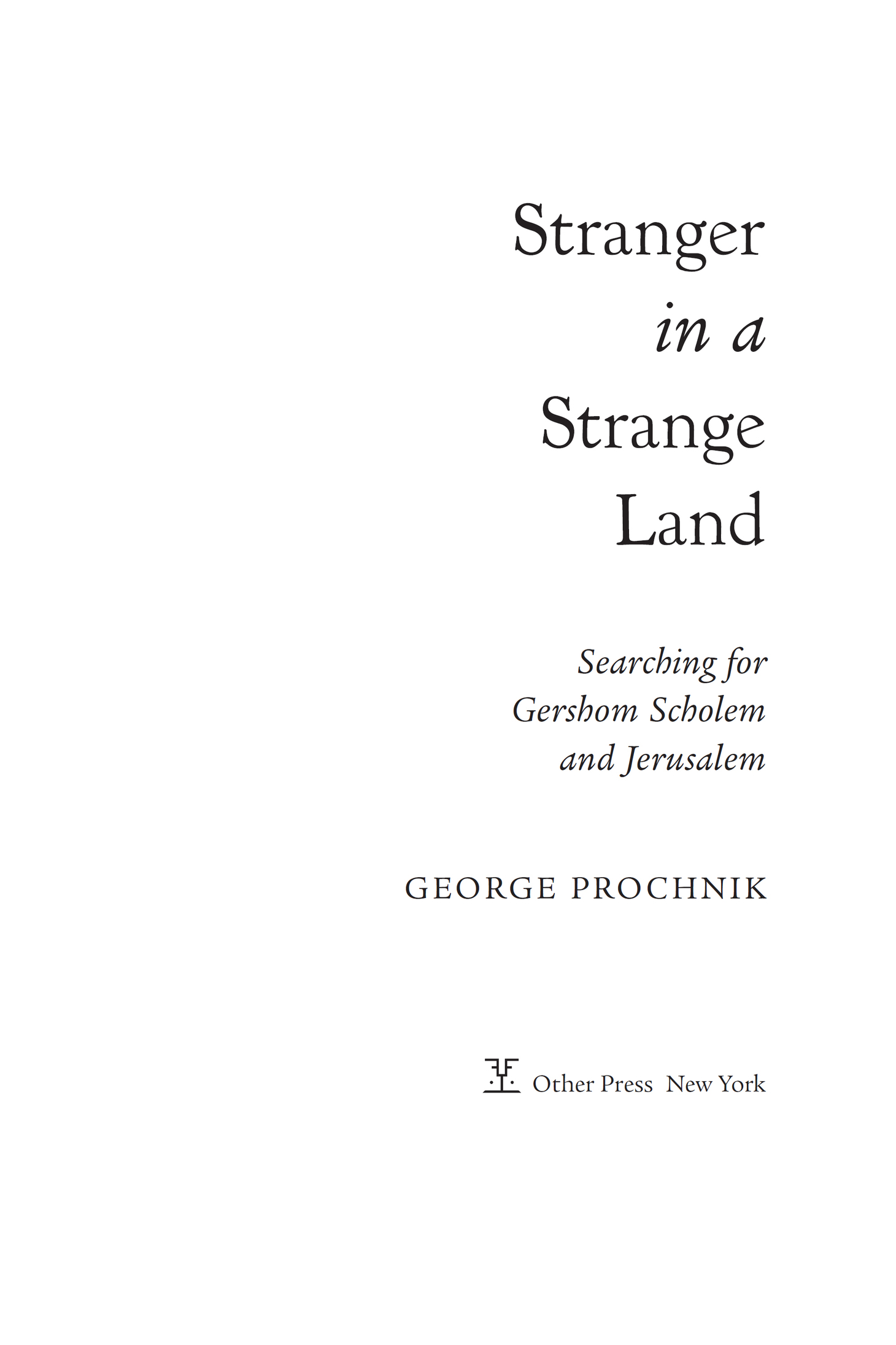Contents
PRAISE FOR Stranger in a Strange Land
What a wonderful book this is: gripping, illuminating, beautifully constructed, and full of the communicative energy that comes from things long in gestation but written with fire and speed. It does so many things so wellthe portrait of Scholem himself, the account of his work, the study of friendship that comes about through the sustained presence of Walter Benjamin, the evocations of Jerusalem and New York, above all the paralleling of Prochniks own story with Scholems. The extraordinary affinities between author and subject give the book an emotional intensity that complements its erudition and lends power to its final, audacious, inspiring claim on the readers capacity for hope.
JAMES LASDUN , author of The Fall Guy
In his previous book, George Prochnik gave us a moving portrait of Stefan Zweig, the Viennese Jew who wrote tenderly of the world of yesterdaythe liberal Europe that collapsed with apocalyptic consequences in the 1930sand killed himself in his Brazilian exile rather than die in its flames. In his powerful new book, Prochnik offers us a portrait of a Berlin Jew, fifteen years Zweigs junior, who made a very different choice: to renounce the dream of a liberal Europe and remake himself, and his people, in Palestine. Gerhard Scholem, who would become the famous scholar of the Kabbalah Gershom Scholem, upheld a cultural version of Zionism, and spoke of the need for ArabJewish coexistence; yet over time he accommodated himself to the often brutal practices of the Jewish state, which turned Palestinians into strangers in their own land. In the late 1980s, as Palestinians in the Occupied Territories launched their first Intifada, Prochnik, an American Jew from the suburbs, settled in Jerusalem with his family, inspired by Scholems vision of a renewed Jewish cultural vitality, only to discover that this vision lay in ruins, no match for the muscular, expansionist Zionism with which it had made a marriage of convenience. In Stranger in a Strange Land, Prochnik writes of Scholems dreamand of his ownwith a rare and affecting combination of authority and vulnerability. This is a deeply felt work of critique and elegy, a probing examination of the subject of our time: the temptations, and the dangers, of belonging.
ADAM SHATZ , contributing editor at the London Review of Books
George Prochniks book presents an uneasy politicalmystical tour through Scholems writing and his own Jerusalem, now lost forever. What makes it a unique and brilliant contribution to current debates about Palestine is that in his reading of Scholem, Prochnik finds simultaneously both the echoes of the forcesmessianic, national, and colonialthat keep tearing the region apart, and also the kernel of something precious to be salvaged. From the abyss of our despair, Prochnik manages to do what so few others can: imagine a future of living together.
EYAL WEIZMAN , author of Hollow Land: Israels Architecture of Occupation and director of the Centre for Research Architecture at Goldsmiths, University of London
Prochnik is a great practitioner of the art of auto-nonfiction, the writing of intellectual history in which a past life is quickened again by the keen presence of the author. Yet Prochnik never obtrudes; rather, his beautiful sentences guide us, gently but surely, through both the often-complex thinking of his subjects and the often-traumatic events of their lives. As in his biography of the mercurial Stefan Zweig, alienation is foregrounded in this account of the scholarly Gershom Scholem (who inscribed it in his adopted name, Gershom, meaning stranger in a strange land). But loss is lightened here by the Scholemian conviction that the Kabbalah, the mystical tradition of biblical interpretation of which he was the world expert, offers not only a key to the broken past but also a call to its healing. If the Kabbalah appeared to Scholem as an allegory of Jewish exile, Zionism was his way to bring this wandering to an end. As a young man Prochnik was fired by similar hopes, and in what he describes elsewhere as a shadow-arc of his subject, he too emigrated to Jerusalemonly, like Scholem, to be disillusioned by the state politics he encountered there. Yet even that loss is lightened somewhat, for Prochnik came to discover what Scholem had also learned: how we are then mandated to live responsibly, inside history. That ethical invitation is heard in every sentence of this inspiring book.
HAL FOSTER , author of Bad New Days: Art, Criticism, Emergency
Reading this utterly absorbing book, I felt like the stranger in the title, led by the hand through the complementary landscapes of two lives: Gershom Scholems and the authors. Moving between them with deftness and artistry, Prochnik holds the readers attention at every turn. In the process, he casts new light on Kabbalah and develops a critique of Zionism that is as thought-provoking as any I have read.
BRIAN KLUG , author of Being Jewish and Doing Justice:
Bringing Argument to Life
ALSO BY GEORGE PROCHNIK
The Impossible Exile:
Stefan Zweig at the End of the World
In Pursuit of Silence:
Listening for Meaning in a World of Noise
Putnam Camp: Sigmund Freud,
James Jackson Putnam, and
the Purpose of American Psychology
Copyright 2016 by George Prochnik
Production editor: Yvonne E. Crdenas
Text designer: Julie Fry
All rights reserved. No part of this publication may be reproduced or transmitted in any form or by any means, electronic or mechanical, including photocopying, recording, or by any information storage and retrieval system, without written permission from Other Press LLC, except in the case of brief quotations in reviews for inclusion in a magazine, newspaper, or broadcast. For information write to Other Press LLC, 267 Fifth Avenue, 6th Floor, New York, NY 10016. Or visit our
Web site: www.otherpress.com
The Library of Congress has cataloged the printed edition as follows:
Names: Prochnik, George, author.
Title: Stranger in a strange land : searching for Gershom Scholem and Jerusalem / by George Prochnik.
Description: New York : Other Press, 2016. | Includes bibliographical references and index.
Identifiers: LCCN 2016034545 | ISBN 9781590517765 (hardcover) | ISBN 9781590517772 (e-book)
Subjects: LCSH: Scholem, Gershom, 18971982. | Jewish scholarsGermanyBiography | Jewish scholarsIsraelBiography
Classification: LCC BM 755. S 295 P 76 2016 | DDC 296.092 [B] dc23
LC record available at https://lccn.loc.gov/2016034545
Ebook ISBN9781590517772
v4.1
a
Contents
For Yona, Tzvi, Zach, and Rafael
always and afterward
In his commentary on the Psalms, Origen quotes a Hebrew scholaras saying that the Holy Scriptures are like a large house with many, many rooms, and that outside each door lies a keybut it is not the right one. To find the right key that will open the doorsthat is the great and arduous task.
GERSHOM SCHOLEM
And she bare him a son, and he called his name Gershom: for he said, I have been a stranger in a strange land


